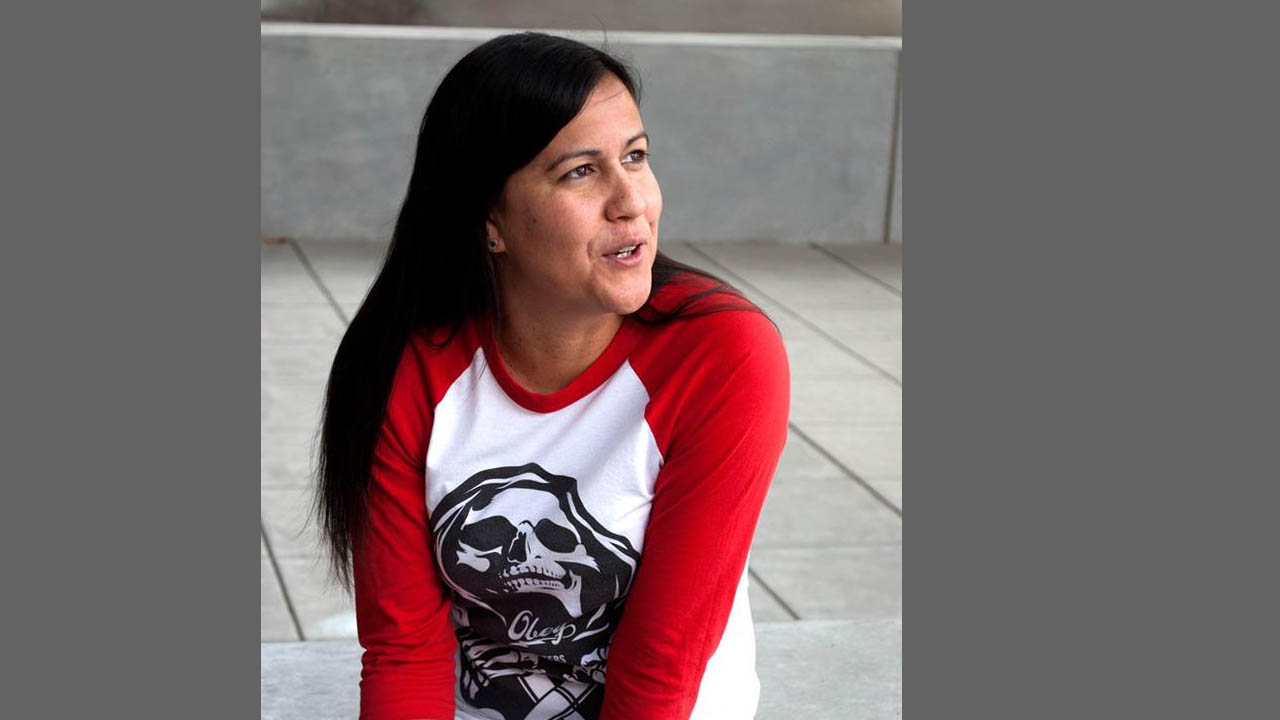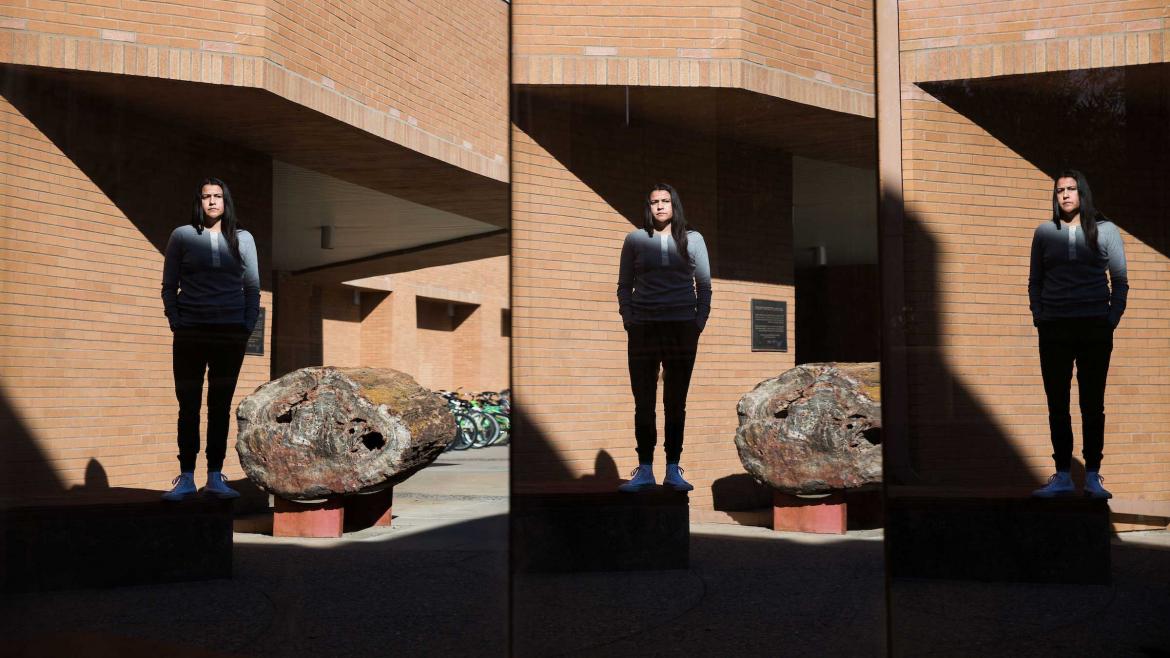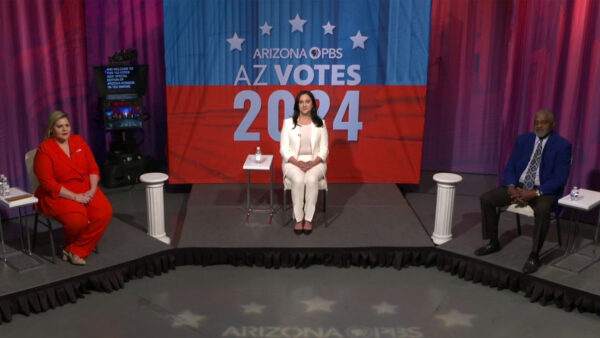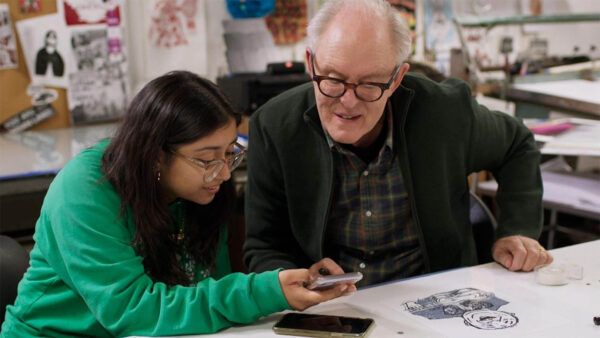
‘Books & Co.’ author Natalie Diaz wins MacArthur ‘genius’ grant
Oct. 4, 2018

‘Magician with words’ explores how language can exist in our bodies and shape identity
Arizona State University poet Natalie Diaz has been named one of 25 winners of this year’s John D. and Catherine T. MacArthur Foundation fellowships, commonly known as MacArthur “genius” grants.
Diaz, an associate professor in the Department of English, blends the personal, political and cultural in poems that draw on her experiences as a Mojave woman to challenge the mythological and cultural touchstones underlying American society. Diaz appeared on Arizona PBS’ “Books & Co.” in 2014 to discuss her collection “When My Brother Was an Aztec.”
WATCH: Natalie Diaz on “Books & Co.”
The fellowship is a prestigious honor, a recognition of exceptional creativity, and it is not, the foundation emphasizes, a lifetime achievement award but instead a search for people on the verge of a great discovery or a game-changing idea. Winners, who must be nominated, receive a no-strings-attached stipend for $625,000, paid over five years.
Diaz, who has done work to help preserve the Mojave language, says she was not always a poet.
“Poetry is strange, and my arrival to it was, I think, a little bit unorthodox. I was always an athlete, and so for me poetry is one way I center myself in my body,” Diaz said in a video by the MacArthur Foundation. “The way that happens is, I really believe in the physical power of poetry, of language. Where we come from, we say language has an energy, and I feel that it is a very physical energy. I believe in that exchange, and to me it’s very similar to what I did on a basketball court.”
WATCH: The MacArthur Foundation video with Natalie Diaz
Diaz identifies as indigenous, Latinx and as a queer woman, and she told the MacArthur Foundation that what she hopes her work can offer “a queer writer or a queer-identifying person in general is the space to one, hold the ways we’ve been hurt and the ways we’ve been erased and also to hold in the other hand, simultaneously, the way we deserve love, our capacities for love and all of the innovative ways we’ve managed to find to express that love to one another.”
Recently, Diaz has been dabbling in new work concerning the importance of water, which reflects her strong affinity for environmental and humanitarian issues. Last summer, she wrote, curated and led an exhibit at the Whitney Museum of American Art in New York City titled “Words for Water: Stories and Songs of Strength by Native Women” that featured a collective of indigenous women poets, writers and musicians exploring the power of language, story and song in the fight for environmental and cultural justice.
Diaz is the founder of archiTEXTS, a program that facilitates conversations — on and off the page — and collaborations between people who value poetry, literature and story. In November 2017, archiTEXTS held an event at ASU called “Legacies: A Conversation with Sandra Cisneros, Rita Dove and Joy Harjo,” in which the authors discussed their personal journeys through the American literary landscape.
Colleagues have remarked on the unique way Diaz plays with language, manipulating traditional structures into something completely unexpected and forcing the reader to rethink what words really mean.
“Natalie Diaz is a magician with words,” said Bryan Brayboy, President’s Professor and director of the Center for Indian Education at ASU. “In her hands, they are much more than singular words strung together to make meaning; she weaves them together through textured, embodied and nuanced precision. Simply put, the words are better when she puts them together.
“Many of us have seen Natalie’s genius up close. It is powerful, profound and provocative. Her presence changes conversations for the better.”
SHELF LIFE: More info on Diaz’s debut collection, “When My Brother Was an Aztec”
This September, two of Diaz’s poems — “American Arithmetic” and “Cranes, Mafiosos, and a Polaroid Camera” — were featured at Motionpoems, an event showcasing a collection of short films based on poems. Diaz said she was drawn to the project because she loves film and thinks in images.
“The word imagination is made up of image,” she said. “There can be no future without images, without the images of our past that we dream or Rubik’s cube into a new configuration of what is possible.”
Both poems will be part of her second book, “Post Colonial Love Poem,” which will be available in 2020, and have influenced her Ford Justice Grant work.
This post originally appeared on ASU Now. Written by Emma Greguska. Top photo by Deanna Dent/ASU Now.




















